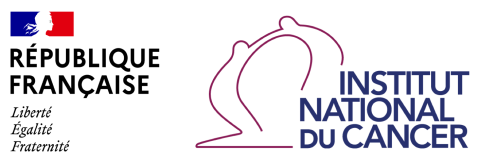KOODAC
Co-led by Professor Martin Eilers (University of Würzburg, Germany) and Professor Yaël Mossé (Children’s Hospital of Philadelphia, USA).The challenge
One of two teams funded in 2024 to take on the solid tumours in children challenge, KOODAC is pioneering groundbreaking protein degradation approaches to target oncogenic drivers of solid tumours in children that were previously considered undruggable.
Unlike conventional small molecule inhibitors, these novel therapeutics induce the degradation of critical oncoproteins, offering a transformative strategy to combat these devastating childhood cancers that have long evaded effective treatment.
Why solid tumours in children?
Hear Professors Yaël Mossé and Martin Eilers, co-team leads of KOODAC, discuss their approach to the solid tumours in children challenge - and why addressing it is so important.At a glance
Team and leadership
KOODAC is co-led by:
KOODAC brings together a team of leading scientists and clinicians with industry partners and patient advocates. The team encompasses expertise in structural and chemical biology, paediatric oncology and medicinal chemistry from ten institutions across five countries.
Tackling the solid tumours in children challenge
Cancer remains a leading cause of death by disease among children worldwide. Despite significant advances in medical research, outcomes for some types of childhood cancers, particularly solid tumours, have not improved substantially in more than three decades. The current standard of care still relies heavily on cytotoxic chemotherapies and radiotherapy, approaches that are decades-old, and can cause severe and potentially life-threatening side effects.
While the major genetic drivers of many childhood cancers have been identified, the oncoproteins encoded by these genes have previously been considered ‘undruggable’ using conventional small molecule inhibitors. Furthermore, attempts to target the activity of these oncoproteins indirectly have shown limited, if any, success.
However, recent advances in structural and molecular biology, as well as discovery chemistry have the potential to make these critical oncoproteins druggable targets. Unlike traditional small molecule inhibitors that aim to inhibit target protein activity, a new generation of compounds – called targeted protein degraders – induce the degradation of the target protein instead. The overarching goal of KOODAC is to leverage innovative targeted protein degradation approaches to develop and deliver transformative new oral therapies targeting the major oncogenic dependency in each of the tumour types they plan to study. If successful, these drugs could be deployed worldwide for children with solid tumours driven by these oncoproteins, and potentially become the new standard of care- offering safer and more effective treatment options.
KOODAC aims to:
Target five oncoproteins that drive high-risk paediatric cancers
KOODAC is focused on developing targeted protein degraders against five key oncoproteins: ALK, DNAJB1::PRKACA, MYCN, EWSR1::FLI1 and PAX3::FOXO1 (or PAX7::FOXO1). These oncoproteins have been implicated in driving neuroblastoma, fibrolamellar hepatocellular carcinoma, medulloblastoma, Ewing’s sarcoma and fusion-positive rhabdomyosarcoma, respectively. By interrogating the underlying biology of these oncoproteins and understanding how protein degraders act on them, the team aims to uncover insights that could inform targeting the drivers of further cancer types.
KOODAC will develop two types of targeted protein degraders: PROteolysis TArgeting Chimeras (PROTACs) and molecular glue degraders (MGDs). Both approaches exploit the cells’ ubiquitin-proteasome system to eliminate the target protein, whereby E3 ubiquitin ligases are recruited to the target, mediating its ubiquitylation and leading to subsequent proteasomal degradation. Protein degraders thus employ a catalytic and sub-stoichiometric mode of action- they don’t require a high fraction of the target to be continuously occupied by the compound to achieve therapeutic efficacy. They are particularly well-suited for targeting proteins lacking enzymatic activity or deep, well-defined drug-binding pockets – which simultaneously means it is much more difficult for tumours to develop on-target resistance.
The team will establish a platform for the discovery, characterisation and development of degraders targeting their five oncoproteins. Promising compounds will be further optimised through a pipeline designed to produce orally bioavailable degraders suitable for clinical evaluation.
Conduct clinical studies
KOODAC will develop multiple degraders in parallel and priotise the most promising drug(s) that emerge, aiming to deliver first-in-human/first-in-child phase I clinical studies for the evaluation of drug safety and activity.
Looking ahead
KOODAC’s long-term vision is to revolutionise the standard of care for children with oncoprotein-driven cancers, causing a paradigm shift in paediatric cancer therapy, by pioneering targeted protein degradation techniques to develop transformative new treatments.
Integral to this mission, KOODAC’s patient advocates will work closely with the researchers, providing insights and guidance to advance this cutting-edge science from the laboratory setting toward clinical implementation. Their perspectives will be crucial in facilitating the global translation of protein degraders, to improve outcomes and quality of life for young patients.

Plain language summary
Cancer is caused by errors in a cell’s DNA (the instructions inside a cell that tell the cell what to do). These errors are called mutations, and they can cause cells to produce proteins that aren’t typically found in the cell, known as oncoproteins.
Oncoproteins can be targeted with drugs to treat cancer, but it’s been difficult to find drugs that can target the oncoproteins in childhood cancers. Team KOODAC will address this problem with a ground-breaking technology called ‘targeted protein degradation’ and a new generation of drugs called ‘degraders’.
Degraders can specifically remove oncoproteins from cancer cells via the cell’s existing ‘waste disposal’ system, which dissolves the faulty protein and leads to cancer cell death. Due to their precise targeting of oncoproteins and abnormal proteins, degraders are theoretically not toxic, and, unlike many other drugs, they can cross the blood-brain barrier to treat brain tumours. Degraders can also be made available in either a tablet or liquid form, making it easier to distribute them across the world.
Team KOODAC brings together an interdisciplinary, international team of scientific experts, patient representatives and a committed industry partner, all sharing the vision of developing safe and effective drugs against the previously undruggable oncoproteins of five childhood cancers: neuroblastoma, fibrolamellar hepatocellular carcinoma, medulloblastoma, Ewing's Sarcoma and rhabdomyosarcoma.



